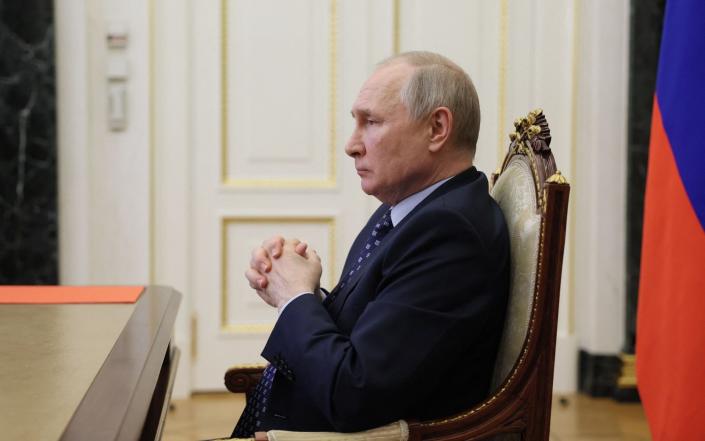
Vladimir Putin was not a Soviet super spy in East Germany in the 1980s, but a hardworking paper pusher eager to please his superiors, an investigation has found.
German magazine Spiegel has investigated Mr Putin’s troubled past, suspecting accounts of his exploits as a KGB agent were exaggerated.
Instead of carrying out vital missions to hold back the forces of democracy, Spiegel said Mr Putin focused on “mundane” administrative work while posted to the KGB in Dresden, “constantly sorting through travel requests from relatives West Germans or searching for potential informants among foreigners”. students”.
Mr Putin was a 32-year-old officer when he was sent to Dresden in 1985, a tense time with the Kremlin’s grip on its vassal states fracturing.
KGB officers were assigned to support the Stasi secret police in East Germany. Although the mission ultimately failed with the fall of the Berlin Wall in 1989 and the collapse of the Soviet Union two years later, stories of Mr Putin’s alleged bravery have become legend.
Perhaps most famous is how, in December 1989, he single-handedly confronted protesters planning to storm KGB headquarters.
“Fact and fiction sometimes get confused”
However, that probably didn’t happen, the magazine reported.
“According to one version [of the story], a single short man stood at the entrance to the nearby Stasi headquarters and watched the spectacle from a safe distance,” Spiegel said. “It cannot be proven that the current Russian president was even there.”
Spiegel also said widely cited witnesses to Mr Putin’s other alleged KGB heroics could not be trusted.
A story about Mr Putin helping anarchists in West Germany plot assassinations was based on the testimony of a serial liar with a criminal record, Spiegel said.
Another story of how he turned a German neo-Nazi leader into an informant was based on interviews with a former Stasi agent who admitted he embellished his statements.
In fact, nothing in the Stasi records suggested that Mr Putin was anything other than risk averse, the magazine said.
“Fact and fiction sometimes seem to blur,” Spiegel said. “Today’s Russian president probably wasn’t a top operative.”
Broaden your horizons with award-winning British journalism. Try The Telegraph free for 1 month, then get a year for just $9 with our exclusive US offer.

